Passages: A Master's Journey Transcript - Part 1
The video begins with a slideshow of pictures from Rawat's life over the song Question by the Moody Blues. It moves on to a series of scenes of 1960's "hippies" and social protest over the hippie anthem "Get Together" by the Youngbloods. (Many of the images link to short clips taken from the video. My comments in italics)



(voiceover) The year was 1968 a time of great social upheaval thoughout the world. The Vietnam war had been escalating throughout the 60's and major anti-war movements had risen globally in response. A
generation had come of age in reaction to the conservatism of the 1950's. "Love-ins" became an antidote to the violence that was commonly taking place in the streets and on university campuses. The Beatles had galvanised a
generation with a new sound which reflected the changing times. Cities like London, Los Angeles and San Francisco becamse meccas for people searching for greater meaning in their lives.
While it is true that most of the early premies were members of the "counter-culture" or at least dope smoking youth, the counter-culture media and elite despised and ridiculed
Rawat's claims to be the Perfect Master and instigator of the Millenium. see also
and here and The Origin, Development, and Decline of a Youth Culture Religion.


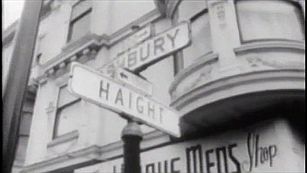


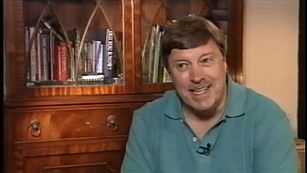
"I think if you'd have sat down with that group of people and, took their stories from each one
you would have had an extraordinary cross-section of human experience. Yeah, and, and people who had done the most amazing things in order to try and find fulfillment." - Ron Geaves
Actually their stories were remarkably similar and banal, they were all young "ex-hippies" of one sort or another.
"I think it was a certain time when pee young people had sort of dropped out, you know, sort of rejected what was on offer and it was that whole sixties thing of, you know, there has to be something more." - Sandy Collier
"I have to say I thought I was a happy person but there was definitely something missing in my life. I knew it. I knew there was something there that I had to get and I didn't have it. There was some kind, some kind of void or emptiness in the middle that needed filling and I felt it was very close but I didn't know how to get there." - Glen Whittaker
"On June 17th a 13 year old boy stepped off a plane from India at London's Heathrow airport on a journey that was to touch the lives of thousands of people. He was Maharaji, and he was already the
central figure in a truly remarkable and timeless story.
It was certainly remarkable, the 8 year old youngest son of a successful Indian Godman/guru inherits the title on death of his father and claims to have incarnated or manifested the spirit the
Avatars or Perfect Masters in an unbroken succession that stretches back into pre-history of the human race but the kid goes to the West,
wallows in materialism and makes a mess of the millenium.
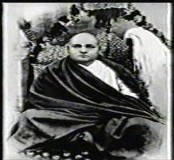
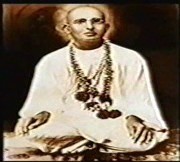
History tells us there have always been Masters or teachers who have helped people experience an innate beauty in their lives. Maharaji's
father, Shri Hans Ji Maharaj, had been the student of such a Master named Swarupanand. On Swarupanand's passing, Shri Hans Ji Maharaj became Master in 1936, he spent the next 30
years of his life spreading the Knowledge his Master had shown him.
History tells us no such thing. This is part of the Rawat's revised religious doctrine. The doctrine at the time this video is discussing was that there was an unbroken lineage (parampara) of Perfect Masters, including
Prem Rawat (Maharaji) who revealed a direct experience of God within inside the human body.
"One time Shri Maharaji was speaking to us and errh there was a professor he asked him this question, "Uh Shri Maharaji when you leave your body and people start worshipping your statues or photos and
ask for the Gift of Knowledge will they be able to receive Knowledge from your statue?" And Shri Maharaji said "No way! Only the living Master after me will impart this Knowledge, not my photos or statues. And then he made
it very clear, he says, "Only a living doctor can help a patient, only a living leader can take care of the situations, problems in his country, and only a lamp that is lit can light other unlit lamps." So in the soms(?),
in the same way, only the Living Master of that time can impart this Knowledge, there's no other way.
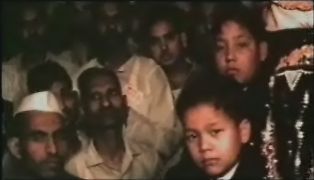
At a very young age Maharaji had shown an extraordinary interest in his father's work and in the practical techniques called Knowledge which lay at the heart of his teaching. His interest developed to the point that his father was allowing him to speak to large audiences when Maharaji was only 4 years old.
Hans Rawat was using the young Rawat as a cute mascot and shill to attract listeners to his speeches and enthuse his followers.
*** Holy Family Alert *** A glimpse of Bhole Ji slipped through the censors

"Shri Maharaji did gave the words many times saying when he was telling him stand up and give satsang to the audience and when he was finishing many times he was saying, "See how young he is and how beautifully he presents the Knowledge. Imagine when he will be grown up how he will present this beautiful Knowledge around the world to the human beings."
Fortunately for the world at large Prem Rawat presents his father's "Knowledge" so poorly that the response has been underwhelming. Even a Perfect Master makes mistakes.
On July 19th, 1966 Shri Hans Ji Maharaj left his body. He was 66 years old.
This is the polite Indian way of saying that the guru died. Bihari Singh had been at the young Rawat's side in the early years of his career but lost his inner circle position when he wavered at the time of the family split. Around 2005 he was active in passing on stories of Rawat's Indian childhood to the short-lived A Voice For peace website and to the "biography" Peace Is Possible by Andrea Cagan for which the Prem Rawat Foundation paid her $60,000. In this Singh was quoted as saying that Rawat's mother, Mata Ji, had refused to believe her husband was dead and ordered his body packed in ice until he returned from 'samadhi'. This was probably just part of an ongoing campaign to belittle his mother. The young Rawat testified on the 31st July, 1966 that he heard his dead father talking to him and was visited by and conferred with him after his death.

"We were standing on the roof of the house where Shri Maharaji used to stay and it was full moon and Maharaji said to me he said 'Look at the moon, I feel Shri Maharaji's presence everywhere' and he just ?? whether we are we lost in our sorrow or we still remember the dearest thing to him, that was propagation of Knowledge. Are we you know thinking about that feeling about that to continue his wishes and I said "Yes Maharaji you are right, I feel the same." And I was so deeply touched when I heard him expressing his feelings and concern about that in a very innocent way. He was only 8 years old at that time and then next day he spoke and everything was so clear that yes he's the one who is going to do what Shri Maharaji many times proclaimed about him."

Few could have expected the strength and determination with which Maharaji took on a role which was to shape the rest of his life.
There weren't too many people thinking about this possibility at the time but he certainly has had a single minded determination to live a life of
luxury, opulence and flying jets at the expense of the role he inherited from his father and he has done so with a cynical attitude to truth, consciousness and bliss.
"He stepped forward and he gave the hope to thousands of people who were crying and wondering and he promised then, "Don't worry,
your Master is with you with you always," and he said "I will take care of Knowledge.
I will try to spread the same Knowledge as Shri Maharaj Ji was doing it."
Is it the same Knowledge after Rawat (Maharaji) changed the meditation techniques in the late 1980's?
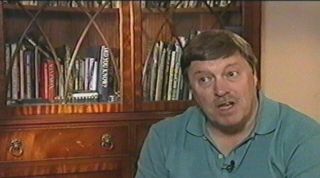
"He knew he had a mission to take Knowledge to the four corners of the world, as his father had told him to do. He wasn't going to mess around".
Messing around with cars, planes, electronics, yachts, sex, drugs, alcohol, Marlboros and peoples' lives is exactly what Rawat (Maharaji)
has done. He works an average of an hour or two a week, work which involves sitting on a stage and making an extremely boring, repetitive off the cuff speech for an hour or so a time.
In the early 1970's his unreliability attracted media attention, afterwards they weren't interested in him at all.
Whitaker himself, had to try to laugh it off to the press: "The two most unpredictable things, are the weather and the Guru."

Now the teacher to thousands of people, Maharaji continued to attend school at St Joseph's Academy. For the next few years, he was to lead an unusual life, while excelling as a student on weekdays, he was speaking to tens of thousands of people as Master and Teacher on weekends and during school vacations.
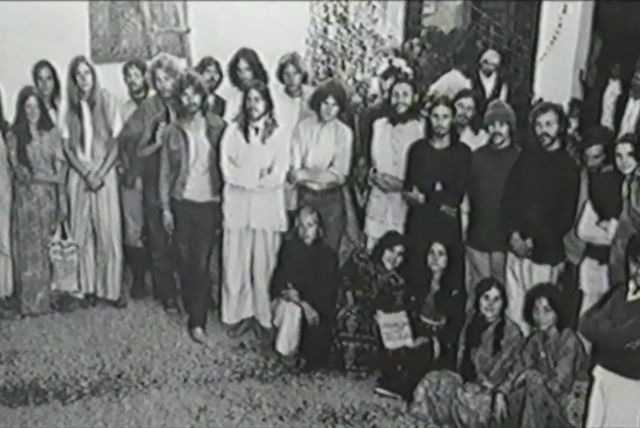
(voiceover) In 1969 Maharaji began to attract the attention of people from the West who were coming to India in search of some form of truth or enlightenment.
Only a tiny fraction of the "seekers" who went to India were attracted to the Rawats. These seekers were looking for famous Masters with ascetic and spiritual credibility or bhang and charas and the dowdy,
uncool and wealthy Rawats with their pudgy, ignorant and technophile young Godboy were in neither of those groups.
Astonishingly enough, the first group of Westerners were all directed to Rawat by Brian Kitt (Mahatma Saphlanand) and these were
Ron Geaves, Sandy Collier, Michael (Milky) Cole and David Beales. Ron and Sandy told Joan Apter in some low den in Afghanistan and she was depressed and deranged enough to go to the Rawats.
Janet Wallace was told about Rawat by an English premie and only Gary Girard (drug smuggler) and Will Ganz (who later became Rampuri, a chillum sadhu) were told about Rawat by Indians.
Back in London it was Kitt with his spacey, cosmic satsangs and good English that made a successful double act with Mahatma Gurucharanand's mystical Eastern exoticism and got Divine Light Mission off the ground.
"He asked me what I wanted and I said I wanted Peace (snigger) oh and it was very interestin' because his approach to that was the opposite to what I thought it would be. You would expect you you know if he was this kind of person out to get followers you know he'd say 'Right, come to me', oagh, 'I can give it to you' but actually he said the opposite he said 'I'm really young, you're not so old yourself, go and search the whole of India, there are millions of people here who promise peace. You know he said 'Check everything out' he said 'and if you can't find it anywhere else' he said 'Hold me in reserve'. (laughter) and you know 'I'll be around'. And I thought about that not for very long, just for a few seconds and I thought 'Well, it seems a bit of a waste really Maharaji to go chasin' all over India which might take me years when I think actually you've you've got the answer to it here, here and now so can I please stay around?' And he said 'Sure, you know, if you want to, you can'".

"I don't recall nearly all of the conversation but one thing he did say, he said 'This life is like a party, so we're all attending the party but we don't know who we are or who the other guests are
or who our host is. He said 'I can show you who you are and who the other guests are and who your host is so you can enjoy the party and uh that sounded, that sounded very good".
And who is the host at the party of life? Well GOD of course or something similar or even greater.
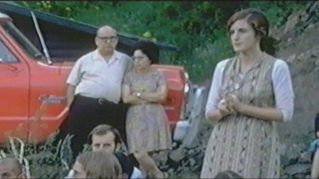
"It was a time in my life when I really needed umm a sense of direction a sense of um yes there is a meaning there is a purpose.
He kept on saying there was, I kept on saying there wasn't, we'd have an ongoing of 'Yes, there is', 'No there isn't', 'Yes, there is',
'No there isn't' and he just wore me down because of the the love".
Joan Apter was probably the sickest, most self-obsessed, neurotic, doped and depressed drama queen to become a follower of Rawat.
And if she wasn't she certainly acted as if she was.

(voiceover) Never forgetting that Knowledge should be made available around the world Maharaji encouraged these people from the West to go back to their own countries and start speaking about the possibility of
Knowledge. He made it clear that one day he would follow.
And he wasn't waiting to be invited either.
"I had no idea (pause) you know that it would come out and it you know it would be sort of you know Maharaji would actually come to the West and and uh it just didn't enter my head I just thought I'd
be one of these lucky ones who sort of stumbled upon this thing in India".
That's strange as the narrator just explained, "He made it clear that one day he would follow."
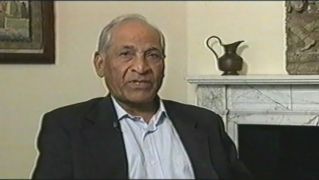
"When Mata Ji found out, Maharaji's mother that he was going to go to England and we all were in Delhi and she, she said 'Are you, I heard that you are going to go to England?' He said 'Yes'. She said, 'I don't feel comfortable to send you at this age, you're only 13, going to the foreign countries. You have to complete your education.' And Maharaji said, 'Mata Ji, I wanted to learn English according to Shri Maharaji's wish which I have done. Now, I don't want to waste my time in school. Teachers in this school have nothing to teach about my topic, my subject and I'm fully confident to convey my message and this is the right time that I need to go.' So he was very strong in that feeling and on the other side she was not still comfortable to say OK you can go and then Maharaji di not want to you know get into argument and he just started shedding tears. Something was pulling him to come to the West and then Mata Ji looked at me and she said, 'Do you really think that Maharaji should come to England, go to England?' I said, 'That would be wonderful Mata Ji, so many people are longing to see him. I just simply showed his pictures and what they want to see him alive.' She said, 'OK, take him but promise that you will bring Maharaji back to his school in 3 weeks.' I said, 'No problem!' (smiles broadly) I said to myself you know 'Future will take care of itself.' ".
"We'd just got this new house in Golders Green which had sort of been a big step forward from this little tiny basement flat we had in in West Ken Kensington. And it had a pay phone and I remember I
was walking out and the going to work and the phone rang and I picked it up and there was this voice from India eeah it wasn't Maharaji it was a this girl woman ringing from Bombay sayin' um Maharaji ??? wants to come to
the UK umm you know are you ready you know to organise events for him and uh it was like 'Yes! ah yes yeah where when's he coming?' 'Two weeks' it was like I was like fell through the floor you know it was like totally
totally and utterly stunned."
He wasn't invited, he gave orders to his followers to get ready for his arrival.
"Maharaji was coming, we were excited, nervous, apprehensive, umm, it was just an extraordinary day. Ahh we'd got the main thing sorted out umm we'd got a house for him to come to, we'd managed to find someone who knew who knew somebody ahh who had this very nice house where a house way beyond sort of our sort of expenditure prepared to allow us to have this house on on reasonable terms in Chelsea just off the King's Rd."

"It was such an experience seeing him getting off the plane like with coming with such a message with such feeling that I know I felt so much and so many other people did just like we'd been waiting forever somehow just for that moment."
Waiting for an aeroplane arrival can seem to take forever but I think Ms Wallace has something more intense and cosmic in mind.

"And he just steps off the plane in Heathrow here with hehe and just walks out into that eeah into a world where he doesn't know anything that's going to go on, what's going to happen to him yeah whether we're going to look after him or not you know whether he's going to get fed or not (laughter) where he's going to be put up you know and, and looking back on that now, I mean that's, that's extraordinary, I mean it'd be extraordinary really in a way if somebody did that even in their early twenties but to do it at 13, is really quite, I mean, er er er it's a remarkable story."
He had a return ticket, a bodyguard, a Mahatma he'd known all his life and access to the plentiful funds of his wealthy family.
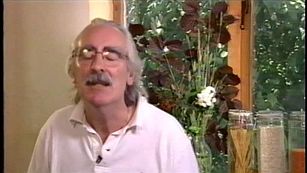
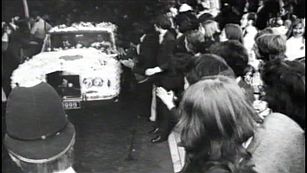
"And the excitement and the enthusiasm around in those days was unbelieveable so it was like one of the most amazing airport arrivals ever." - Peter Lee (English chauffeur for Rawat)
All 200 of the English premies, were there! Overwhelming! 5,000 young girls - Marolyn Johnson lookalikes - greeted the Beatles at JFK airport in 1964.
Now that's a welcoming committee the young Maharaji would really have appreciated. What about this amazing premie airport greeting?
"I mean the whole thing looked as though it was very together in the uh sense that there was this nice house in Chelsea and there was this Rolls-Royce"
It certainly didn't look very together for very long if at all. In picture right, Ron (with long hair and beard) helps Rawat into a Cortina with Mike Finch
and Mahatma Param Saphlanand looking on.
"and the Rolls Royce was only rented for a day so that went off back to (heagh) the people we'd rented it from and the only car we actually had I mean there was only I think at that time only one of us who'd received Knowledge, I mean, who actually owned a car, um, and that was a girl called Karen and the car was a maroon Cortina so, um, so the Rolls Royce became a maroon Cortina and um"
"after two weeks I actually run out of funds, um, for the house in Chelsea."
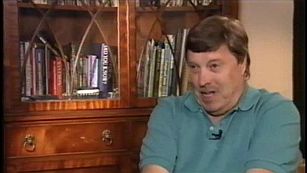
I had to tell him, you know, it came, it fell to me people said "Well you tell him Glen." (inbreath) "Well I don't mind telling him." So I said it, I should have minded it was just thick-skinned I suppose. I tried to say it in a sorrowful, humble way cause I felt ??? the feeling was that he would have the answer, he would have the answer and in fact that is true to this day. If you've got a question, you know, ask him, he'll give you the answer to it. And his answer was "Well, where do you live?" I said "Well I live in a little ashram in North London with about 15 other people." - Glen Whittaker
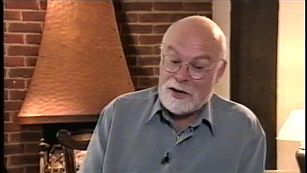
"I was waiting for him at the door of this house for Maharaji and Maharaji sort of
pulled up in the maroon Cortina and got out and I said something to him, "I'm really sorry Maharaji this house is not like the other one" and and he teased me a bit. He said "No, it's not is it?" And I was like thinking "Oh
no" and I I said "I'm really sorry" and he said, "No, the house is not like that one at all, no definitely not." And then he just kind of grinned in the way he does, that beautiful smile he has and and he just said, "No,
this house is actually better than that one." He said "This house is ours and that house", he said "it may have belonged to somebody very rich you know" and he said "it may have been very comfortable but it it wasn't our
house, this is our house. This is we can work in this house, this is where people are, you know, who who love Knowledge live here." So I said to him "Should I get everyone to move, you know, cause there's 15 people here. We
can turn the whole house over to you." And he said "No", he said, "They should stay. It's their, it's their home, they should stay, just make, as long as one room is OK. So long's I've got a room I'm fine." And, I'm and I
always sort of think about that when people, sort of, make these accusations, you know, sort of, Maharaji likes the high life or he stays in, you know the, actually always for me I remember that, there was sort of the high
life on one side, which we couldn't afford to keep up, and then there was this house where a bunch of people lived who loved practising Knowledge and loved Maharaji and that's where Maharaji wanted to be. He was much
happier there." - Professor Ron Geaves
If "he was much happier there" then it seems the blissful meditation wasn't working for the young Rawat in Chelsea. Of course Rawat had never asked to move into the cheap, crowded house while the spacious uncrowded
better quarters were actually available and yes as Geaves just manages to prevent himself saying, Rawat only stays in the most expensive and luxurious
accomodation when he travels, all his assets have come from donations and he unashamedly lives in incredible opulence in a Malibu Mansion.
Click here to go to the second part of the transcript.

